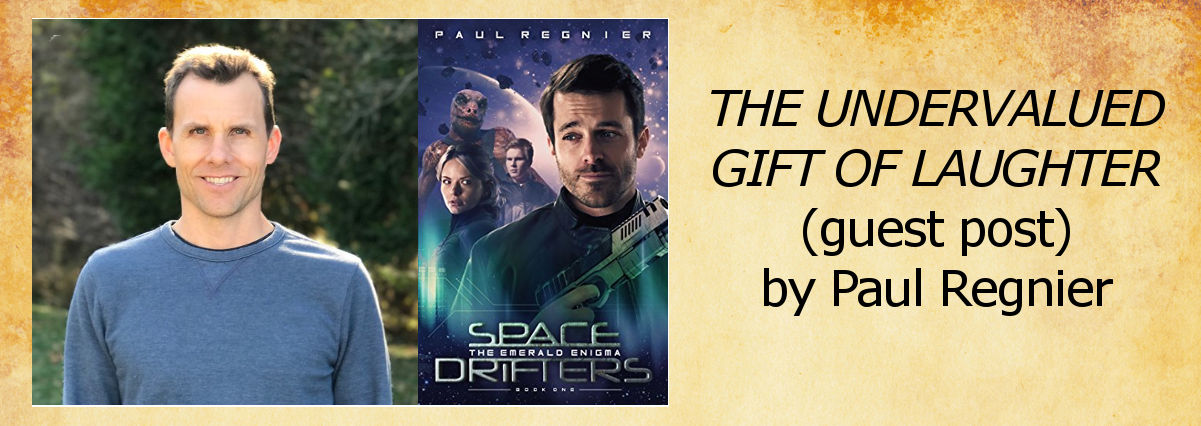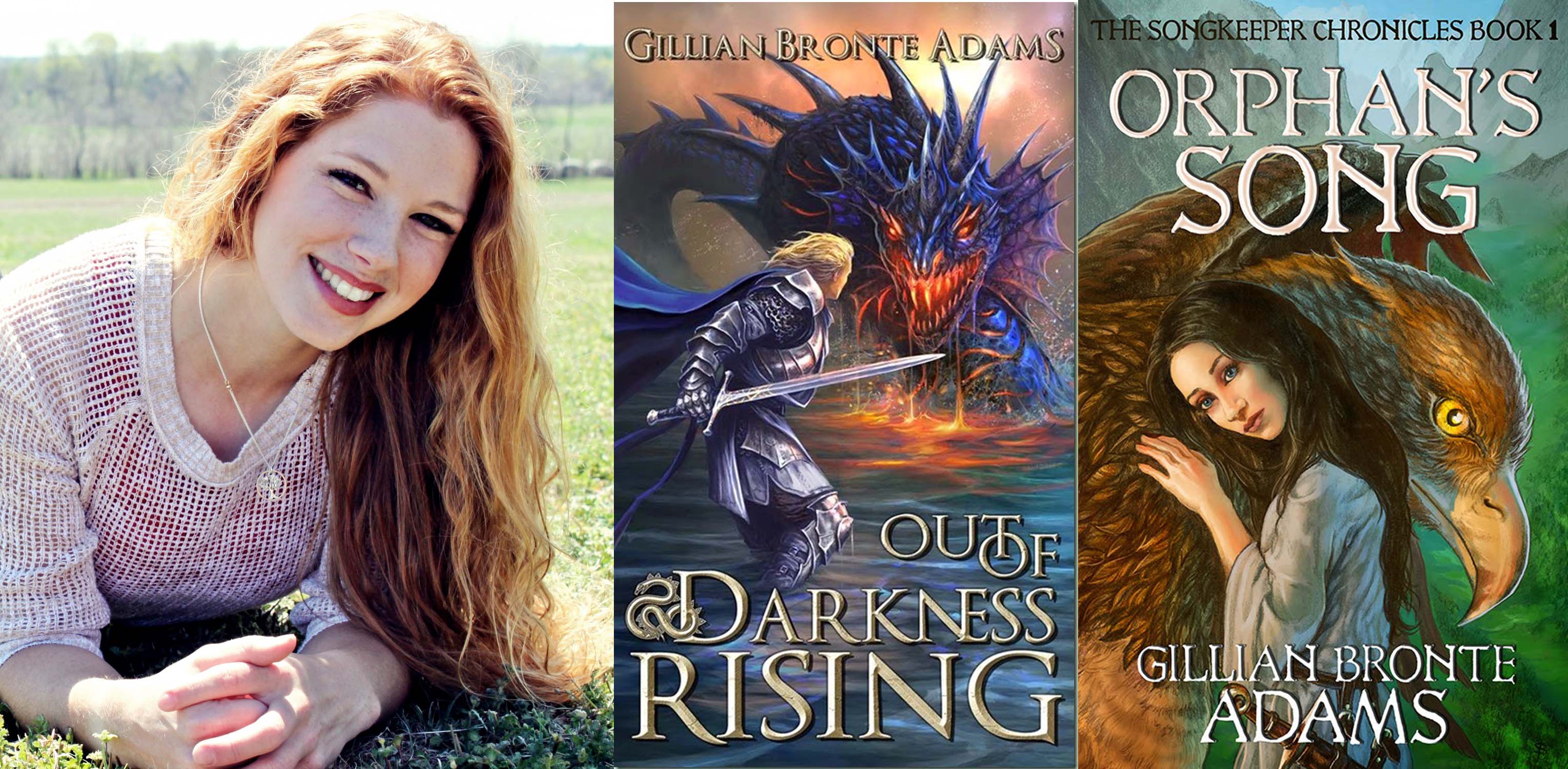“The Undervalued Gift of Laughter” by Paul Regnier (GUEST POST)
Hi readers! This month Christian author Paul Regnier asked me to review Space Drifters: The Emerald Enigma, and he agreed to write this month’s article “The Undervalued Gift of Laughter.”
Mash together (in novel form) the Guardians of the Galaxy, a little Indiana Jones, and Disney’s The Black Hole and you’ll have an idea how The Emerald Enigma comes off. Paul Regnier surprised me with this book. I do not normally go for the humorous sort of space opera but he really pulled it off. I found myself laughing aloud on several occasions. The characters are predictable but not in an off-putting way because they are fully fleshed-out, having each their own unique charm. You will love his book.
–Scott Appleton
The Undervalued Gift of Laughter
by Paul Regnier
Don’t we all take ourselves too seriously sometimes? One of my goals as a writer is to bring more humor to stories.
There are certainly times to have serious and dramatic moments in writing and treat spiritual messages with the reverence due the subject matter but I think humor is sometimes neglected. Comedy is often viewed as “light” or “fluff” in stories as if it’s just some throwaway, cheap thrill like candy. I firmly disagree. I think humor can be just as impactful as serious drama.
I know that in my life, humor and laughter have been a huge help in going through tough times. In my darkest of days the value of humor cannot be overstated. Laughter is one of the natural healing tools God has blessed us with.
Proverbs 17:22 “A merry heart does good, like medicine, but a broken spirit dries the bones.”
A quick web search will reveal a myriad of health benefits associated with laughter:
-Aids the healing process
-Reduces stress
-Promotes relaxation
-Boosts the immune system
-Produces pain relieving endorphins in the body
“A clown is like an aspirin, only he works twice as fast.” –Groucho Marx
When I get together with friends, laughter is always a part of our interaction. It bonds people together. It eases tension and helps to overcome the stress and worry of life. Plus, it’s a natural way to celebrate the joy of what God has given us.
Psalm 126: 1-2 “When the Lord restored the fortunes of Zion, we were like those who dream. Then our mouth was filled with laughter, and our tongue with shouts of joy; then they said among the nations, ‘The Lord has done great things for them.’”
I view humor and laughter as tremendous gifts from God. When I incorporate them into stories, my hope is that the reader will be lifted up and encouraged the same way God’s gift of humor continues to do so for me.
You can find Paul Regnier on facebook

